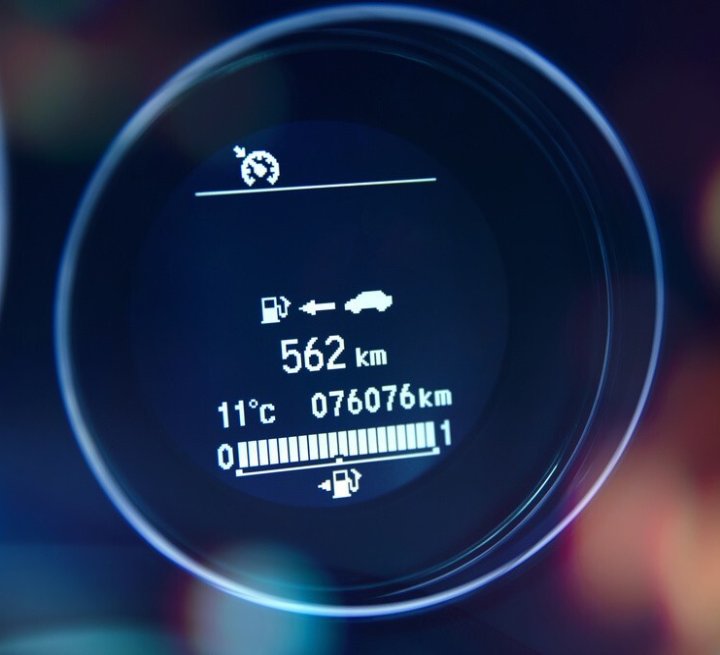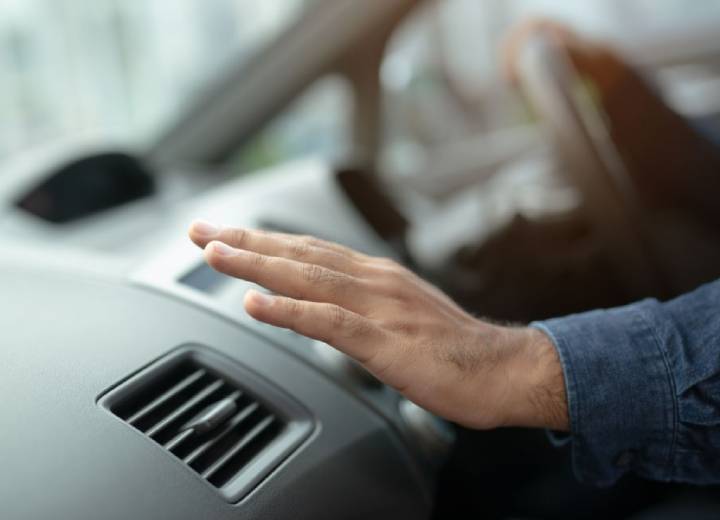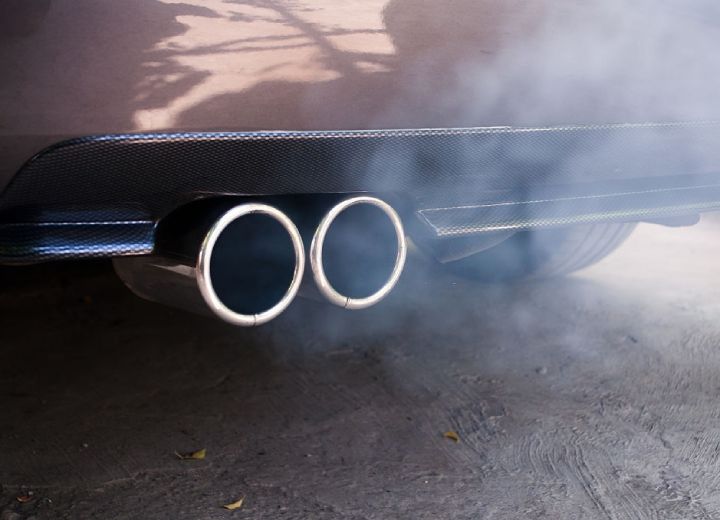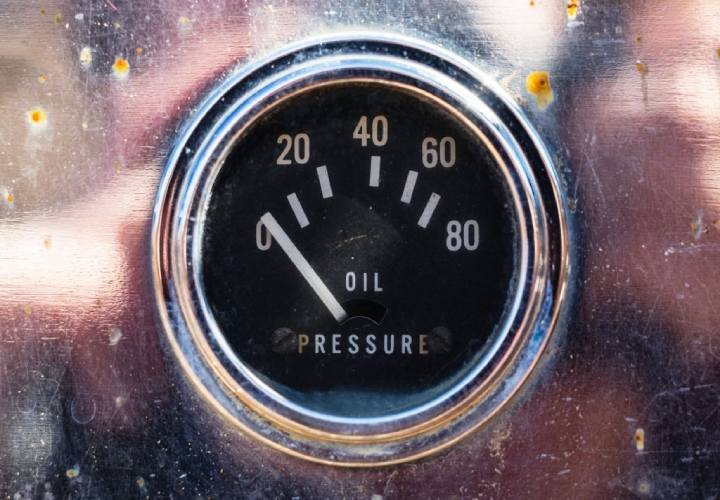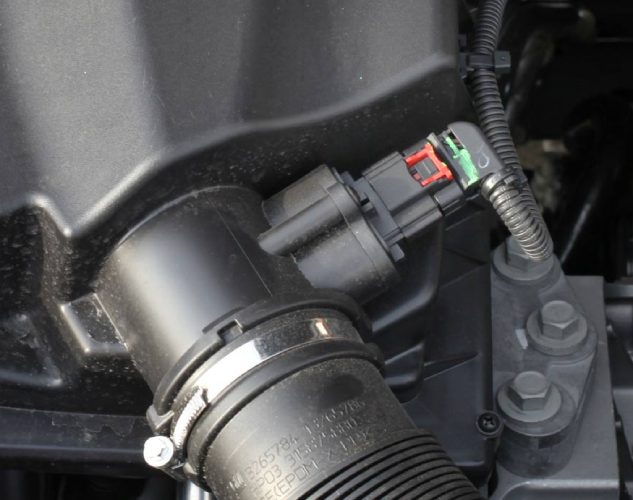Diagnosing a faulty A/C compressor might not always be as easy as plugging in a code reader. There are times when diagnosing the problem will take more than a few minutes and a professional.
- What is an A/C compressor in a car?
- Will a bad A/C compressor throw a code?
- What are the signs and symptoms of a bad A/C compressor?
- How can I test my car's A/C compressor?
- Is it OK to drive a car with a bad A/C compressor?
- Can I unplug my A/C compressor and still drive?
- Is it worth replacing the A/C compressor? What are the costs?
- In Summary
Depending on the issue with the A/C compressor, it may trigger a check engine light and throw a trouble code. Refrigerant leak, blown-fuse, condenser, and compressor problem will likely trigger the check engine warning light and throw a code.
Examples of trouble codes caused by bad compressors include the P0645: A/C clutch relay unit circuit; P0531: A/C Refrigerant pressure sensor circuit; P0534: A/C Refrigerant charge loss; and more. Sometimes, a manual inspection and symptoms are the only way to diagnose the A/C compressor.
If you are still unsure what an A/C compressor does in your vehicle or your mechanic just informed you that you need a new one and are still unsure why you do, here is a quick one.
What is an A/C compressor in a car?
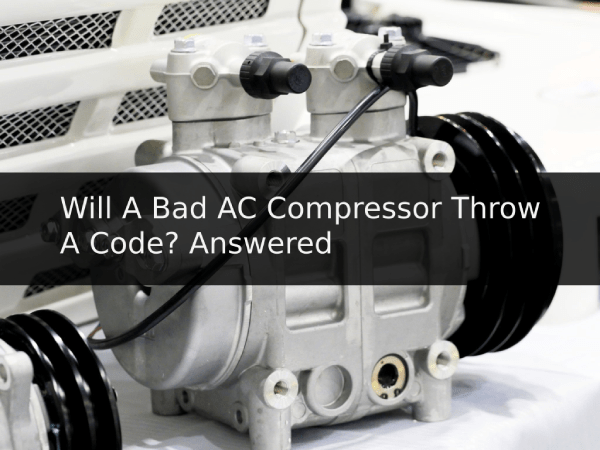
The A/C compressor can be viewed as the heart of your vehicle’s A/C system. It pumps out high pressure and sucks in low pressure. It functions as a power unit of the A/C system regulating the pressure into the condenser, where the gas is converted to liquid form.
Usually, the A/C compressor is connected to the accessory belt for rotation and will not perform if there is any issue with the belt or spin.
Will a bad A/C compressor throw a code?
In most cases, a bad A/C compressor will throw a code and trigger the check engine warning light. But, there are occasions your vehicle ECM will not throw a code. In such cases, you should rely on the symptoms you noticed in your car and manual inspection of the A/C compressor.
Examples of trouble codes caused by bad compressors include the P0645: A/C clutch relay unit circuit; P0531: A/C Refrigerant pressure sensor circuit; P0534: A/C Refrigerant charge loss; and more.
What are the signs and symptoms of a bad A/C compressor?
A/C blows hot air
If your A/C is on, but it blows warm air, it could be a sign of a bad A/C compressor. While other factors could cause your A/C to blow hot air, like low refrigerants, I have noticed that a bad compressor is almost always the case.
The best way to diagnose a faulty compressor is to manually inspect the compressor power feed using an electrical tester (voltmeter). You can find a 2-pin terminal just outside the compressor. If you see that your compressor’s electrical feeds and the connection are correct and the compressor still fails to kick, it’s most likely a bad compressor.
Noisy A/C compressor
A noisy compressor is a sign that it is faulty. The compressor will produce a clicking sound, especially during initial ignition. However, when you hear a loud, unusual noise from the compressor, you can tell something is wrong with the A/C clutch. The clutch is responsible for driving the belt.
In addition, the compressor has an internal bearing that allows it to spin and is connected to the belt outside. If this bearing is damaged, it could be responsible for the noise you hear in the compressor. Physically inspect the compressor to diagnose the sound. You can do this by turning your car on and off to see if there is a change in sound.
Refrigerant Leak
Car refrigerants are responsible for cooling down the warm air in your car cabin. If your car runs low on refrigerant, then your car can only produce warm air. Leaking refrigerants are not only a sign of bad a/c compressors but are also harmful to cabin passengers who inhale them.
The best way to diagnose the leak is to pay attention to hissing sounds from the A/C unit. If you can hear the sound, trace it and get it fixed timely to prevent further damage.
Stuck clutch
The clutch allows the pulley to engage and disengage the engine. It helps keep the compressor engaged or disengaged when necessary. A stuck clutch means that the compressor does not receive any power from the vehicle engine.
How can I test my car’s A/C compressor?
Testing your car’s A/C compressor will require you to inspect any components manually.
You can quickly test your car’s A/C compressor by carrying out these three easy steps on your vehicle.
Step1: Check if Compressor clicks
Crank your vehicle on, put it on the brake, and engage the emergency brake. In this step, you want to examine if the compressor function properly. Connect a pressure gauge to the lower side of the compressor. Adjust gauge by two 0z. It should kick the compressor. Pay attention to the click sound as evidence.
Step 2: Examine the fuses
If, after adjusting the gauge by adding more freon, the compressor has not kicked still, then you should examine the fuses. You can locate the fuse in the glove area or consult your car manual.
Step 3: Inspect other affected components.
These components include wiring to the compressor, clutch, and other operations. You want to check whether the clutch still engages. Also, check the high and low-pressure switches and other operations. It needs to be replaced if you still cannot get the compressor to engage.
Is it OK to drive a car with a bad A/C compressor?
The simple answer is yes. You can drive your vehicle with a bad compressor. Although, this will depend on what is wrong with the compressor. The compressor’s primary function is to aid the cooling system. If you are comfortable with driving without air-conditioning, then you can.
Another aspect of this question is whether this negatively affects the car engine. Since the faulty compressor works with the serpentine belt and stalls, it could affect other engine components.
I personally do not recommend driving the car for more than 100-200 miles if the A/C compressor gave up on you. You will have to do the repair regardless, so might as well do it ASAP than waiting and risk breaking other components.
Can I unplug my A/C compressor and still drive?
Yes, the A/C compressor can be disconnected and would not affect your driving. It is like putting off your air conditioning unit. Unplugging the A/C compressor will eliminate the seize. Note that unplugging the A/C compressor does not mean total removal of the component, as it relies on the serpentine belt, which is a vital component of the car.
Should you do this? Probably not. If the car will still run, for now, that doesn’t mean that a disconnected A/C compressor can’t cause additional problems over time.
Is it worth replacing the A/C compressor? What are the costs?
As discussed already, you will still be able to drive the car with a broken A/C compressor. However, there might be other faults that can develop over time. Therefore, you should always consider repl/ing the A/C compressor if it failed.
Unless the total cost of the car is less than the repair cost, there is no reason one should avoid this repair.
When replacing the A/C compressor, one should budget between $900-$1,200, depending on the make and model of the car, location, and who does the repair. There will be cheaper mechanics, as well as dealerships, that will charge nearly double the money.
There might be cheaper alternatives, by going for used car parts and DIY. But this is not always available to anyone, especially the skills required to replace your car’s A/C compressor.
In Summary
So what is there to keep in mind? Well, a faulty A/C compressor will not always throw an error code but will do most of the time. Each trouble code will indicate the exact problem, allowing the mechanic to diagnose the problem much more quickly and save on the repair cost.
It is possible that sometimes A/C compressors can be repaired without causing a huge dent in your wallet. In those rare cases where there are no trouble codes shown, diagnosing the problem might cost more than the actual repair.
If your car is worth less than $1,000 dollars, it might be worth driving it into the ground and then buying a new one, as the repair costs can outweigh the total value of the car.
Zohan writes repair manuals and technical documents for multiple automotive publications. He helps create visual guides and instructions for dealership techs and savvy car owners. Zohan collaborates with engineering teams to ensure the repair manuals accurately reflect the vehicle designs. His manuals are valued for their clear organizational structure, step-by-step visuals, and focus on safety.

